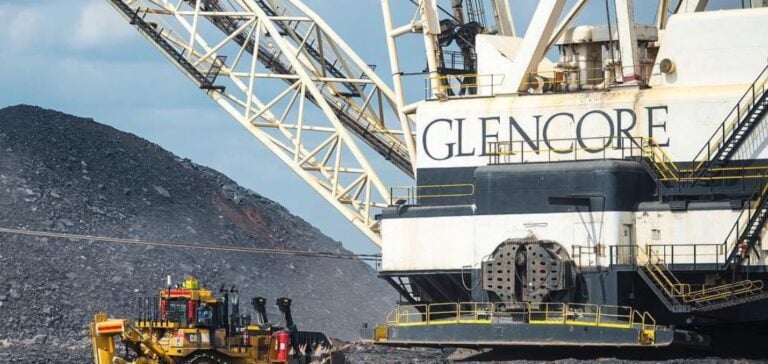Glencore boss Gary Nagle reaffirms the company’s commitment to coal at the Annual General Meeting in Zug, Switzerland. In the face of criticism from climate advocates, Nagle insists on the importance of fossil fuels in meeting today’s energy demand, while ensuring the transition to a low-carbon world.
“The world is hungry for energy and we continue to supply these energy needs through a portfolio of steam coal.” “Fossil fuels have no long-term future in this world, but they are necessary in the short and medium term” to ensure the energy transition and move “from a carbon-intensive world to a decarbonized world.”
Glencore strategy and outlook
Glencore is maintaining its coal business, unlike competitors such as Rio Tinto and Anglo American, which are withdrawing from the sector. The Swiss company manages its mines responsibly, gradually closing them as they are depleted. In 2022, this strategy will enable Glencore to achieve an annual net profit of $17.3 billion, thanks to soaring coal prices triggered by the energy crisis linked to the war in Ukraine. By 2023, however, profits will have fallen back to around $4.3 billion as a result of lower prices.
Economic impact of coal
Nagle points out that, in a traditional year, coal accounts for less than 10% of Glencore’s sales, rather between 5 and 6% excluding energy crises. This share is set to decline over time, as the company strengthens its activities in other mining sectors such as copper, zinc and cobalt. This strategic position, while profitable in the short term, raises questions about Glencore’s future in an energy market in transition.
Criticism and reactions from trade unions and environmentalists
Despite positive financial results, Glencore faces constant criticism, not least from Norway’s sovereign wealth fund, which has placed the company on its 2020 exclusion list. During the general meeting, environmental activists and representatives of the IndustriAll trade union federation demonstrate in front of Zug’s Theater-Casino, demanding that Glencore withdraw from coal and respect workers’ rights.
Testimonial by Glen Mpufane
Glen Mpufane, IndustriAll’s Mining Officer, criticizes working conditions in Glencore’s mines, particularly in the Democratic Republic of Congo. Mpufane, present at the meeting with shares purchased for this purpose, is calling Glencore’s management to account over wage conditions and workers’ rights. It emphasizes that workers deserve decent working conditions, reflecting growing global concerns about mining practices.
“We’re here every year to hold Glencore to account for the exploitation and violation of workers’ rights in the mines.””They deserve decent working conditions.”
Future prospects and reflections
The defense of Glencore’s commitment to coal highlights the tensions between the immediate need to meet global energy demand and the long-term imperatives of the energy transition. As the world moves towards cleaner energy sources, Glencore will have to navigate these conflicting demands. Growing criticism from investors and environmental activists suggests that the company may have to accelerate its withdrawal from coal to keep pace with market trends and societal expectations.
Glencore’s commitment to coal represents a major strategic challenge, balancing the satisfaction of current energy needs with the preparation of a low-carbon future. The debates and criticisms surrounding this strategy continue to influence the company’s future decisions.






















